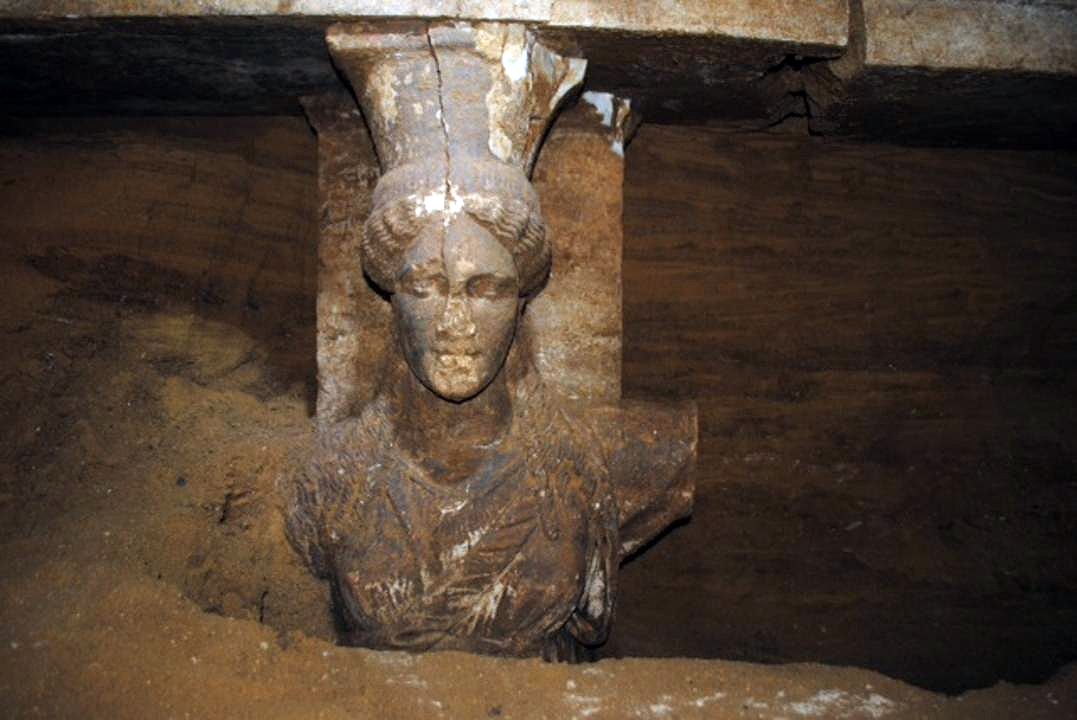
On September 6, 2014 archaeologists announced some of the findings of their two year excavation of the tomb area. They also released spectacular photographs of Caryatid Maidens gracing the entrance of the tomb.
Read our August 27th post on The Mystery of Alexander the Great’s Tomb
On Saturday, Greek archaeologists excavating a massive Alexander the Great-era burial mound complex at Kasta Hill, in the northern Greek region of Serres, made the exciting discovery of two large exquisitely-carved caryatid marble statues.
News of discoveries is becoming more frequent since the Greek government formally announced to the world that the tomb had been discovered in Amphipolis last month, a Greek city that was founded by the Athenians in eastern Macedonia on the Strymon River in 438-437 BC.
Read the full story: Amphipolis Greek Tomb Discovery: New Caryatid Marble Statues Discovered
In addition to photos of the caryatids, released photos of a marble tile found in the ceiling of the tomb and a mosaic floor made of marble tile. Photos of The Lion of Amphipolis found at the top of the burial mound were released earlier this year.












